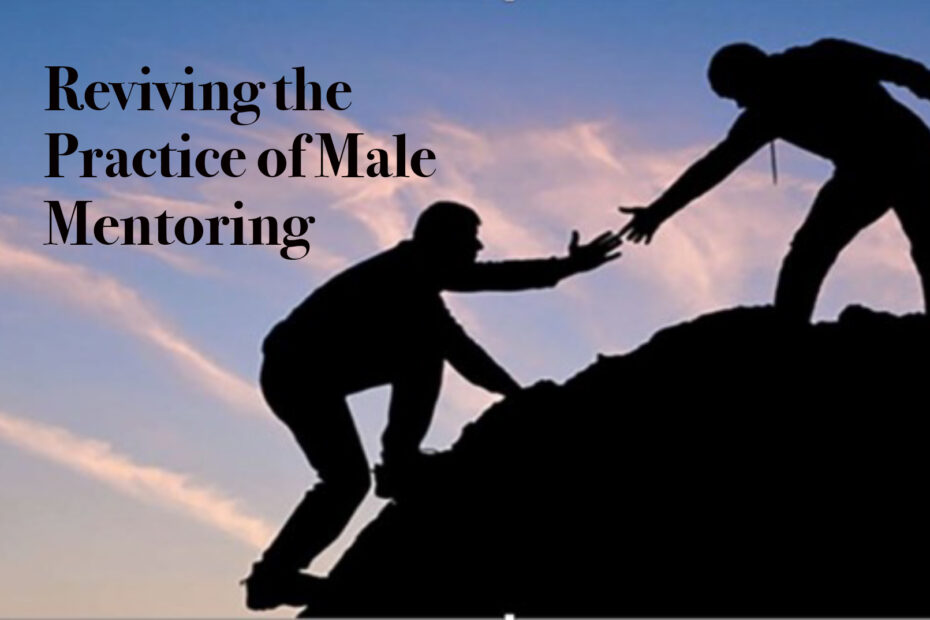Just for Men (and for the women who want to sneak a look). If you find it interesting, do leave a comment and pass it on.
Reviving the Practice of Male Mentoring
The practice of Male Mentoring – mature men acting as a role model and friend to adolescent males, though as ancient as human history, it is arguably as needful and relevant today as it ever was. It remains one of the best known ways of improving outcomes for male adolescents, who must not only deal with the upheaval of change in their bodies, their sense of self, and their relationships with peers, siblings, parents and teachers, but as well with the immense challenge of readying themselves for manhood.
For parents, responding to young males experiencing these changes can be fraught with conflict and misunderstanding. Balancing caring, encouragement and protectiveness, with a boy’s need for risk-taking and experimentation in their endeavour to grow up, is no easy thing. With the best of intentions, fathers and their sons can get caught up in an escalating “battle of wills”, with a pattern of overreaction, recrimination, mutual frustration and avoidance.
Most commonly in traditional cultures, a boy’s mother’s brother, not a boy’s father, was seen as best suited to assisting him with the process of initiation into the world of men and manly responsibilities – clearly recognizing the problems and incompatibility of fathers and sons in this process. It affirmed that to be caring and responsible as a father was to recognize the limitations of what he could do to help his son in one of the most critical times of growing up; it recognised the need for another man, less “involved” than father, to have a crucial role.
Mentors are not substitute fathers or surrogate parents; they are role models and friends, able to help young men achieve self-confidence and self-identity, recognize options available to them, experience something of their individual potential, and exchange boy psychology for adult man psychology. Mentors can help young men to discover worthwhile values and goals and become meaningfully placed and connected within the world of men. And it still remains true for young men that, despite the many genuine efforts of women to encourage them, nothing carries the same potential as a few thoughtful and heart-felt words from an older respected man.
Think about how it might have helped you if you’d had an older man take a real interest in you and listen to you – to have encouraged you, believed in you, and accepted you, at a time when you felt least worthwhile and accepted? When a man does that for a boy, its effects may last a lifetime. Seeking a mentor for your son, or offering to be one yourself may be worth considering. And it’s not a one-way street; mentors themselves can benefit greatly. Being respected by younger men can reignite energy and idealism long neglected, and it can inspire mentors to live up to the same standards and values of mature manliness that they encourage in their protégés.
